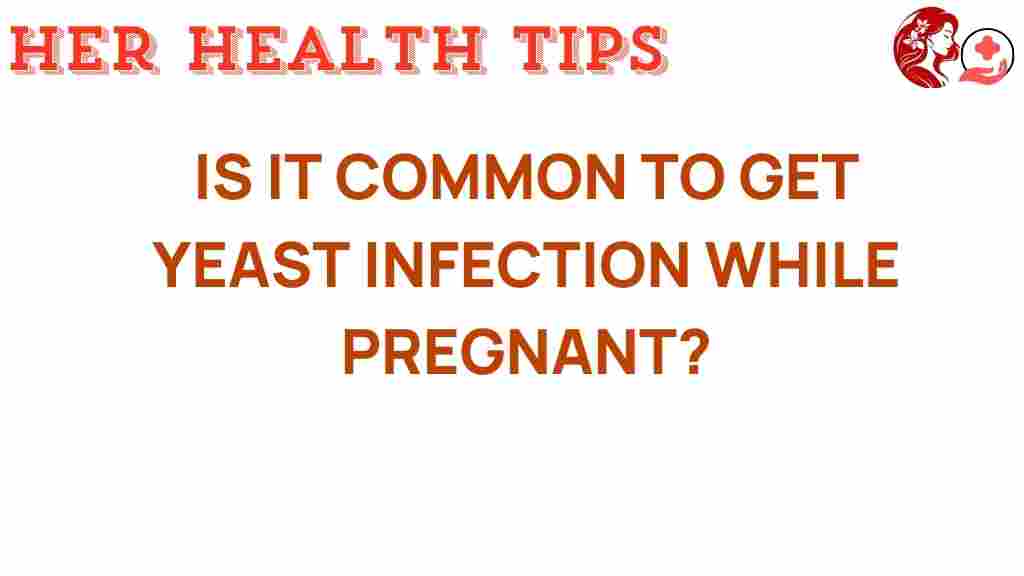Unraveling the Mystery: Are Yeast Infections Common During Pregnancy?
Pregnancy is a time of significant change for a woman’s body, and with these changes come various health concerns. One common condition that many expectant mothers may encounter is a yeast infection. In this article, we will explore the relationship between yeast infections and pregnancy, focusing on their prevalence, symptoms, prevention strategies, and treatment options, while considering the impact of hormonal changes on women’s health.
Understanding Yeast Infections
A yeast infection, often referred to as candidiasis, is caused by an overgrowth of the Candida fungus, typically Candida albicans. While this fungus is naturally present in the body, certain conditions can lead to an imbalance, causing it to multiply and result in an infection.
Are Yeast Infections Common During Pregnancy?
Yes, yeast infections are relatively common during pregnancy. Studies suggest that around 30% to 50% of pregnant women may experience a yeast infection at some point. Several factors contribute to this increased risk during pregnancy:
- Hormonal Changes: The surge in hormones, particularly estrogen, can alter the vaginal environment, promoting the growth of yeast.
- Immune System Changes: Pregnancy affects the immune system, making women more susceptible to infections.
- Increased Vaginal Discharge: The increase in vaginal secretions during pregnancy can create a moist environment conducive to yeast growth.
Symptoms of Yeast Infections During Pregnancy
Recognizing the symptoms of a yeast infection is crucial for prompt treatment. Common symptoms include:
- Itching: Intense itching in the vaginal area is a primary indicator.
- Burning Sensation: Many women experience a burning feeling during urination or intercourse.
- Discharge: A thick, white discharge resembling cottage cheese is often a sign of a yeast infection.
- Swelling and Redness: In some cases, the vulva may appear swollen and red.
Prevention of Yeast Infections During Pregnancy
While it may not be possible to completely avoid yeast infections, certain preventive measures can significantly reduce the likelihood of developing one during pregnancy:
- Wear Breathable Fabrics: Opt for cotton underwear and loose-fitting clothing to promote airflow.
- Avoid Scented Products: Steer clear of scented soaps, douches, and feminine hygiene sprays that can disrupt the natural balance of bacteria and yeast.
- Maintain Good Hygiene: Keep the vaginal area clean and dry, especially after exercising or swimming.
- Limit Sugar Intake: A diet high in sugar can encourage yeast growth; therefore, maintaining a balanced diet can help.
- Stay Hydrated: Drinking plenty of water can help maintain overall health and support the immune system.
Treatment Options for Yeast Infections During Pregnancy
If you suspect you have a yeast infection during pregnancy, it is essential to consult your healthcare provider for an accurate diagnosis and appropriate treatment. Common treatment options include:
- Topical Antifungal Medications: Over-the-counter options like clotrimazole or miconazole are often considered safe during pregnancy. However, always consult with your healthcare provider before use.
- Prescription Medications: In some cases, your doctor may prescribe stronger antifungal medications.
- Home Remedies: Some women find relief using natural remedies such as probiotics, yogurt, or garlic, but these should also be discussed with a healthcare provider.
When to See a Healthcare Provider
It’s important to see a healthcare provider if you experience:
- Severe symptoms that do not improve with over-the-counter treatments.
- Frequent yeast infections (more than four in a year).
- Symptoms that worsen or do not resolve after treatment.
- Symptoms that resemble those of a sexually transmitted infection (STI).
Step-by-Step Process to Manage Yeast Infections During Pregnancy
Here’s a simple guide to help you manage yeast infections during pregnancy:
- Recognize Symptoms: Be aware of the common symptoms of yeast infections.
- Consult Your Healthcare Provider: If you suspect you have a yeast infection, contact your doctor for advice.
- Follow Recommended Treatment: Use the prescribed or recommended treatments as directed.
- Implement Preventive Measures: Adopt lifestyle changes to prevent future infections.
- Monitor Your Health: Keep track of your symptoms and discuss any concerns with your healthcare provider.
Troubleshooting Tips
If you find yourself dealing with recurrent yeast infections, consider these troubleshooting tips:
- Evaluate Your Diet: Reduce sugar and refined carb intake, which can promote yeast growth.
- Review Your Hygiene Products: Ensure that you are using products that are gentle and free from irritants.
- Manage Stress: Stress can impact your immune system; practice relaxation techniques.
- Consider Probiotics: Incorporating probiotics into your diet may help maintain a healthy balance of bacteria in your body.
Conclusion
In conclusion, yeast infections are a common condition during pregnancy, affecting a significant number of women. Understanding the symptoms, prevention strategies, and treatment options is essential for maintaining women’s health during this unique time. If you experience any symptoms of a yeast infection, consult your healthcare provider for guidance and support. By being proactive and informed, you can manage your health effectively during pregnancy.
For more information on women’s health and yeast infections, you can visit this healthcare resource.
Remember to prioritize your well-being and seek healthcare advice when needed. Your health is vital, not just for you, but for your growing family.
This article is in the category Reproductive and created by HerHealthTips Team
